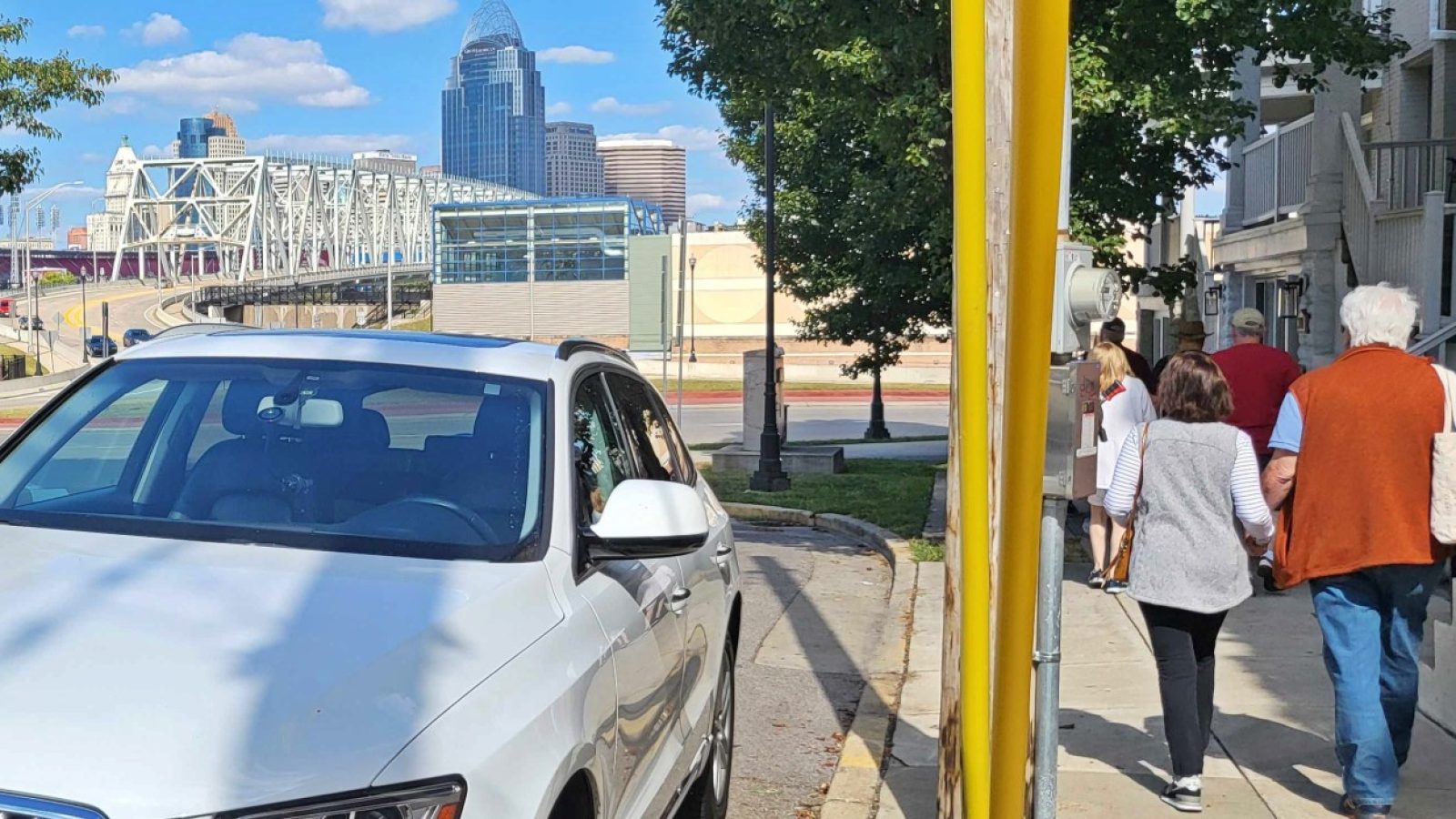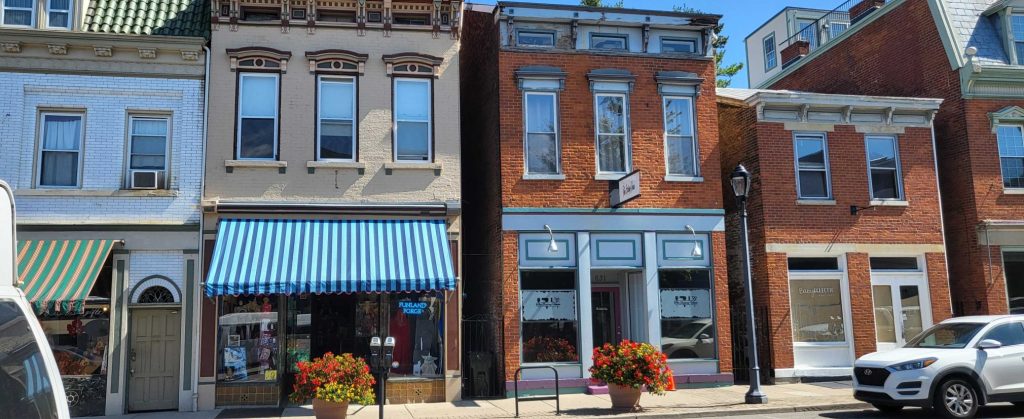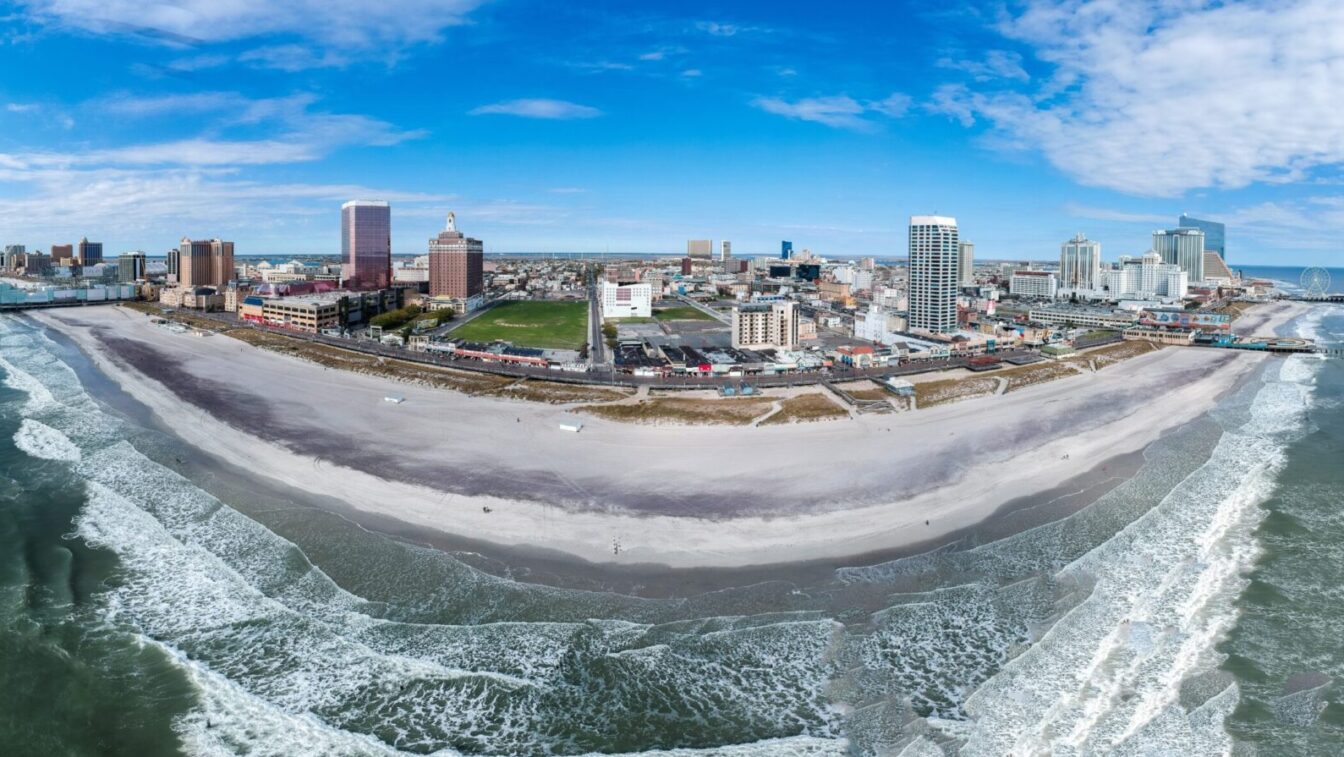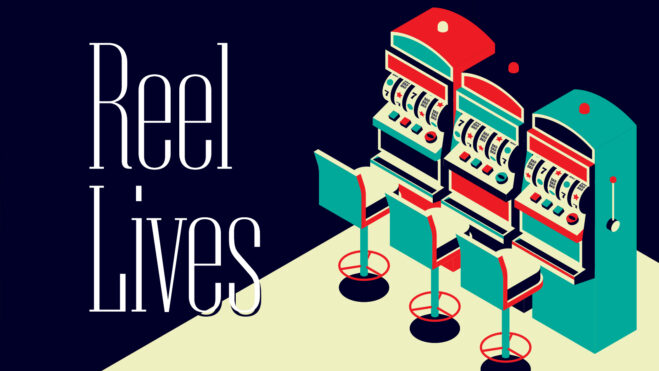Newport Was Gambling’s Bridge To Vegas
Local history professor tells tales of Kentucky river town that was once a mob haven
8 min

NEWPORT, KENTUCKY — The Press Coffee House on Monmouth was filling with early morning sight-seers craving caffeine and carbohydrates, fuel for a day at the aquarium along the river or browsing quaint shops. Or maybe they’d take in the guided “gangster” tour massing across the street, reveling in the sordid details of the town’s history as Cincinnati’s arm’s-length oracle of gambling and sin. And for a while, the nation’s.
Tourists squint at windows from where mob enforcer Frank Andrews fell or position for selfies on Central Avenue where racketeer Melvin Clark dropped with a bullet in his neck. Even with Newport resuming its legacy as a bustling night spot, it’s difficult to imagine this pin-drop-quiet section of the increasingly posh suburb as the epicenter of the illegal sports betting business in the 1950s, and the training program for the mobsters who eventually left for Las Vegas as it became the new gambling mecca.
They took with them ideas from Newport, specifically from so-called “carpet joints” like the Yorkshire Club, Tropicana, and Flamingo — operated by Meyer Lansky’s crew — that combined gambling, fine dining, and high entertainment and were frequent stops for the Rat Pack of Frank Sinatra, Dean Martin, Sammy Davis Jr., and Tony Bennett.
Desperate times shaped Newport, explains James C. Claypool.
“You had the advent of World War I, where people felt like you might not be living the next day, the impact of the cholera epidemic after World War I, same attitude,” Claypool, a professor emeritus of history at Northern Kentucky University, told Casino Reports. “The Roaring Twenties, same attitude. It carried on through until The Depression years, and if they had a dime or two, they gambled or drank.
“And then along comes World War II, and the same old repeat of World War I. And so we have this all the way into the ’50s.”
It’s a tale of guys named “Screw” and “Trigger,” an actress named Marilyn and the “King of the Bootleggers,” a mailman whose morality changed everything and a former Notre Dame quarterback who eventually cleaned the place up.
Claypool shared his recollections with Casino Reports about this raucous, troubling, and formative chapter in the history of illegal — and eventually, legal — gambling in the United States.
In the beginning … how Newport boomed
CLAYPOOL: Probably the origins relate to the fact that Newport was a military installation. With military installations come soldiers, and with soldiers come gambling and women and drinking.
That’s pretty much the way it goes, as you know. And that was the impetus toward Newport heading into the direction it headed. By the pre-war years this is basically a German community and the traditions of German life are drinking beer, getting together socially, and gambling.
And they gambled in variety ways: bingo and lotteries, card games and betting on horses, and even betting with bookies on other things such as sports.
So the area was dotted with bookies and with Germans who wanted to have a good time. And as that evolved, places developed in Newport and Covington [Kentucky] where you could pursue these, let’s put ’em as vices.
And that is, you could gamble and you could drink, and you could party and you could find women.
More money, more problems
The social scene of carousing in Newport changed after World War I, with organized crime outfits from around the Midwest suddenly interested in cashing in on this boomtown by the Ohio River. But residents often went to bed with unlocked doors in their houses along tidy streets, even as the city’s population tripled to as much as 100,000 when revelers poured in at night. They were yet to have seen enough.

CLAYPOOL: The focus shifted. As time passed by, the Mafia got interested, and specifically a group known as the Mayfield [Road Mob]. They were based in Cleveland and they controlled the Midwest. And so they began to infiltrate Newport by getting ahold of businesses, buying them, leasing them, renting them.
And soon they set up a series of clubs, tavern-like clubs where you could gamble, drink, find a girlfriend or whatever. Eventually though, some of these became what was known as bust-out joints. If a person happened to get lucky and survive their rigged games — many of ’em were rigged, the card games and any other games that they were providing — they would head out of the club and get mugged.
And that was pretty standard procedure. In addition to that, they were able to help influence elections and elect law enforcement people as well as judges who were favorable to their position. And judges didn’t much care about gambling either way, because it was part of the community. As time went by, some of these officials were paid off, bribed.
Newport becomes big business
As Newport’s clandestine economy grew larger and more firmly under the control of organized crime, Kentucky law enforcement acquiesced. State legislators in Frankfurt also acquiesced despite the conservative bent of the area. Newport seemed like a problem far away in the borderlands.
CLAYPOOL: There was a whole system of corruption and a system of moving the money. This area became one of the biggest layoff areas of sports betting in the nation, if not the largest. Quite likely the largest at one point. With that came the criminals, but you always have to remember this: The criminals were smart in the sense that they generally did not injure, kill, shoot, whatever, civilians. Because what that did was bring the state down on ’em.
And the state viewed northern Kentucky as wild, free territory. They basically left it alone. Most of the politicians who were based in Frankfurt, the capital of Kentucky, had ties to central Kentucky, Western Kentucky, and Eastern Kentucky.
The criminals were smart in the sense that they generally did not injure, kill, shoot, whatever, civilians. Because what that did was bring the state down on ’em.
And our legislators, of course, had the same attitude as the people they represented here in northern Kentucky. Many of the counties in Kentucky in this particular period were dry. So the fact that we were wet counties and the fact that these things were going on didn’t square with the values of many of those legislators. But quite frankly, they didn’t take much interest in northern Kentucky. It was just an occasional raid and they were on to their own things.
Organized crime, bribes, long drops
By the 1950s, mob rule was well-established. Cops, judges, and politicians were bought and paid for, and independent business owners were wise to accept offers they couldn’t refuse. Off-duty policemen made extra cash as traffic controllers at a numbers club located next to the police station.
CLAYPOOL: The officers were smart. They were very smart about all of that. It was wide open. Everybody knew it was wide open. People came from all over the nation, and specifically, from Ohio and adjoining states.
The cab drivers from Cincinnati knew all the spots to take them to. The clubs would feature big-name entertainers. And on several occasions, the famed Rat Pack appeared in Newport, and were visible there. This was high-flying.
Occasionally, one of the gangsters would run afoul of the mob and he would meet an untimely death.
An example of that was a guy by the name of “Screw” Andrews who refused to sell out his interest to certain members of the mob. And he suddenly fell out of a fourth- or fifth-floor hospital room one night. But he realized he couldn’t fly. And it wasn’t uncommon.
Newport bad for the heart in bygone era
CLAYPOOL: A friend of mine named Dr. Fred Stein, when he was deputy coroner, when learning the ropes, the then-acting coroner took him up to the levee there in Newport, and there was a body. And he said, “Fred, you fill out the report here. You need the experience.”
So Fred filled out the report and handed it to the coroner, and the coroner looked at it and said, “Oh, no, this won’t do,” because he had said the cause of death was multiple gunshot wounds.
And the coroner said to Fred, “You gotta change this.” He said, “If you don’t change this, we’ll have nothing but inquiry, and people down on us, tying us up at the cause of this death. And all other deaths that you see up here from now on is heart attack.”
And so he did. You’ll find a lot of heart attacks in Newport in that period of time. So that was part and parcel of it.
Reforming Newport, circa 1961: The mob goes hard
CLAYPOOL: A Protestant group began a campaign to try to help clean it up. They were worried about the morality and all the other things associated with it, but because they were the weaker of the [local religious] groups, nothing basically happened. So ultimately what’s going to have to happen is the Catholic groups are going to have to get involved. And that would take the form of a very famous athlete by the name of George Ratterman.
George Ratterman played quarterback at Notre Dame and played professional football. And once he and his Catholic friends got involved, the game got a lot different.
But there was the catalyst, and here it sometimes is overlooked.
There was a postman. His name was Chris Seifert and he was just a postman making his rounds. And he would go down into Newport and he would deliver mail to these houses of prostitution and see these poor old girls and young girls being exploited. And one day on a corner of the delivery route, he vowed he was going to try to clean it up.
And he became the catalyst for the reform movement that ultimately produced the Committee of 500 in conjunction with the Protestant ministerial associations and the Catholic community here. He did what he said.
Let’s frame George Ratterman: Bad idea
CLAYPOOL: This was when the mob tried to frame George Ratterman.
Ratterman was running for sheriff. And he vowed to clean up Newport. But the other candidate was running ahead of him. [Club-owning gangster] Tito Carinci said to come over to Newport and he’d give him some information that would help his campaign. So, of course, Ratterman went over there, and they slipped him a mickey, and they took him over to a hotel in Newport and put him in a room with a stripper, whose name was Juanita Hodges, but who went by stage name of April Flowers.
The idea was to compromise Ratterman, who had many children, and destroy his candidacy.
However, they had contracted with a photographer to take pictures of all of this. But the photographer’s grandmother was a friend of Chris Seifert and his wife, and attended the same church.
And so she told the grandson: “You don’t do this. Under no circumstance do you do this.”
And he didn’t do it.
Meanwhile, the police who had been paid off came up and arrested Ratterman, took him down to the police station, charged him with lewd behavior, various things.
He got home, he finally sobered up some, and then some of the people on the Committee of 500 came to talk to him, try to find out what had happened. Ultimately, what did happen was they had a trial and the mob was absolutely certain that they had him. They had evidence and the charges and so forth.
But what they didn’t know was that the grandmother was going to testify. And that broke ’em.
They thought they were gonna win, and they didn’t win. And of course, Ratterman was the victor in a landslide. And once he got to be sheriff, he started picking ’em off.
But what they didn’t know was that the grandmother was going to testify. And that broke ’em.
Now this was the real deal, and they were going to convene a grand jury and go after the mobsters. And with that, then the loss of a couple of other political positions the mob had controlled, they decided the game was up.
There was always the clubs, the drinking, the girls, but on a much smaller scale. They had a theater there where girls would take their clothes off and things like that, but it had all toned down basically by that time. And what happened, very interestingly, what happened was the Mafia took all of these guys who had been running these clubs and working for them and so on, and sent ’em out to Las Vegas. You’ll find that all the early managers of clubs in Vegas came from Newport.
During my lifetime, it was quite easy for people who lived in northern Kentucky to call upon their mobster friends to get all kinds of perks in Vegas.






